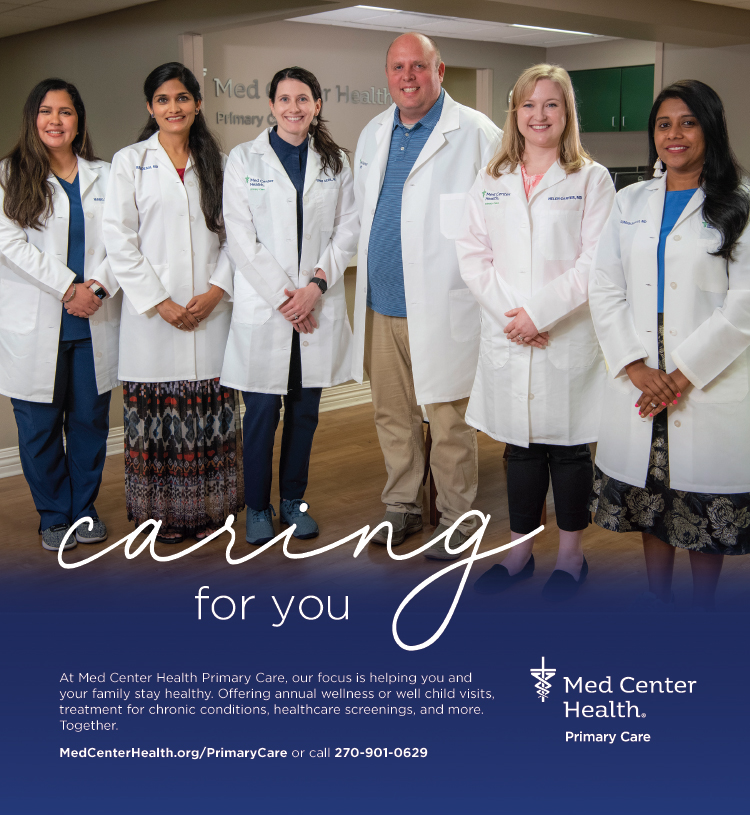
The thyroid is a tiny, butterfly-shaped gland located at the base of the front of your neck, and it has an enormous impact on your overall health. Though the thyroid is small, it impacts every organ in your body, and an issue with your thyroid can interfere with vital bodily functions.
More than 20 million Americans are affected by thyroid disease, but many don’t even know they have an issue. A diagnosis is important because the thyroid can affect every system in your body.
The two most prevalent types of thyroid disease are hypothyroidism and hyperthyroidism, and though these words are very similar, the effects are quite different.
“Hyperthyroidism prevalence in the United States is 1.2%. Hypothyroidism affects 3.7% of the United States population,” said Dr. William Moss, Chief Medical Officer for Med Center Health.
Hyperthyroidism is an overactive thyroid. This means your thyroid is working too much and producing too much thyroid hormones, and hypothyroidism is the exact opposite. Hypothyroidism means you have an underactive thyroid that isn’t producing enough thyroid hormones.

“Thyroid disease can affect anyone including men, women, infants, teenagers and the elderly,” said Dr. Moss. “It can be present at birth and it can develop as you age, but a woman is about five to eight times more likely to be diagnosed with a thyroid condition than a man.”
So, how can you tell if you are one of the more than 20 million Americans suffering from a thyroid disorder?
Symptoms of hyperthyroidism include hand tremors, weight loss, nervousness, a fast heart rate, irritability, trouble sleeping, brittle skin, and muscle weakness.
If left untreated, hyperthyroidism can lead to serious health problems like blood clots, stroke, heart failure and other heart problems.
Some symptoms of hypothyroidism tend to be the exact opposite: fatigue, weight gain, cold sensitivity, constipation and forgetfulness.
Untreated hypothyroidism can lead to serious complications, including heart disease and nerve disease, and in rare cases it can be fatal.
Thankfully, both diseases are treatable once detected. If you are experiencing symptoms of either hyperthyroidism or hypothyroidism, contact a Med Center Health Primary Care provider. The provider will perform an examination and determine which blood test and radiology scans are needed. If you are suffering from a thyroid issue, your provider will discuss the next steps for treatment to help you manage the condition.
If you’re interested in scheduling an appointment with a Med Center Primary Care physician, please visit our website at medcenterhealth.org/primary-care where you can choose from one of nine primary care locations in the South Central Kentucky area.
-submitted by Med Center Health





